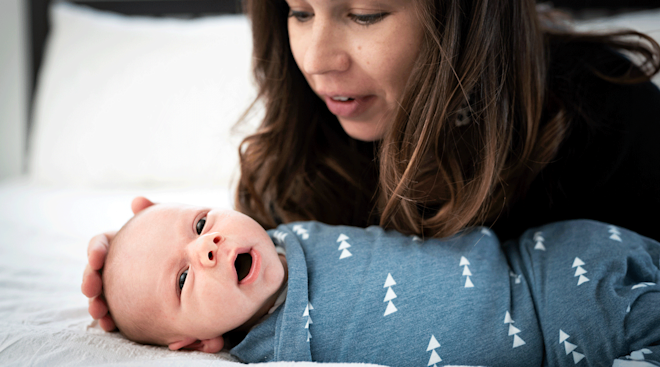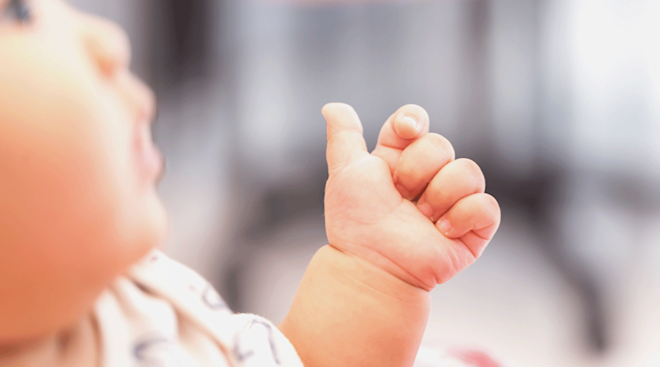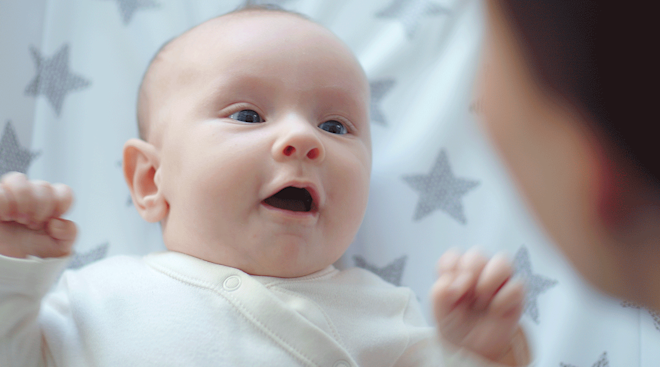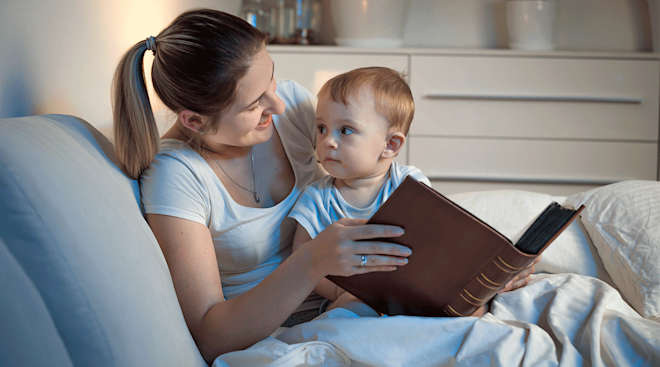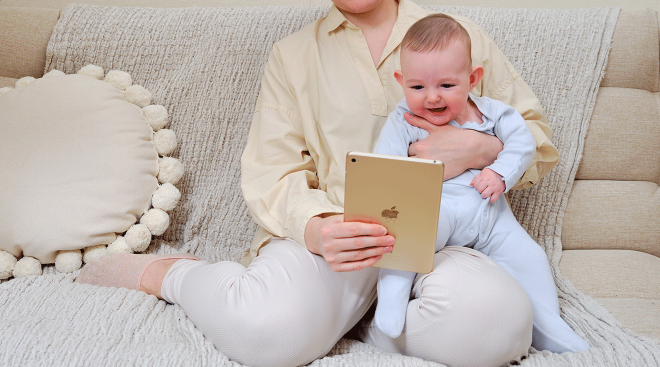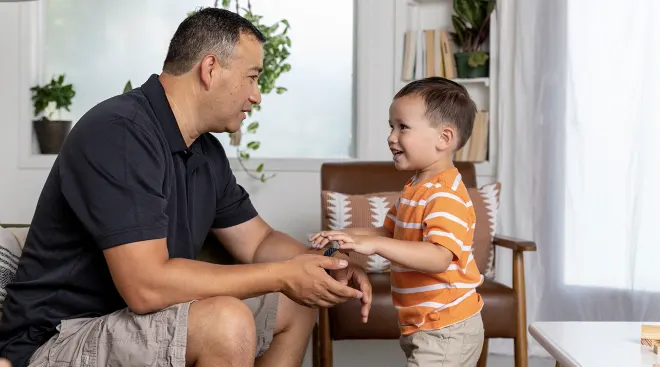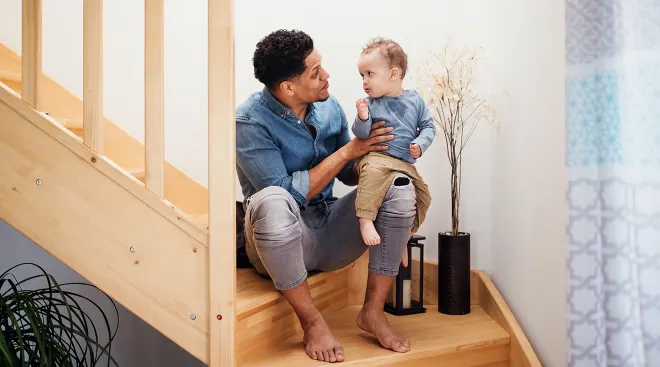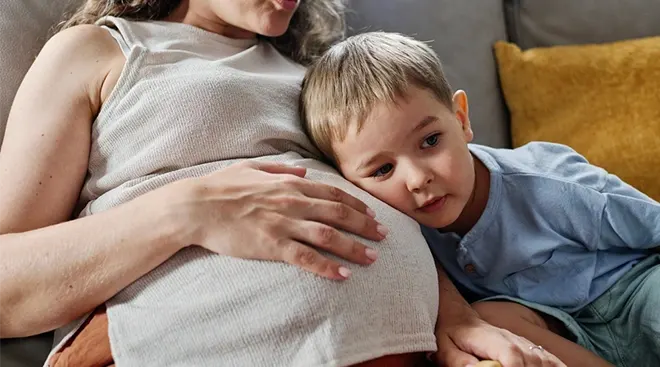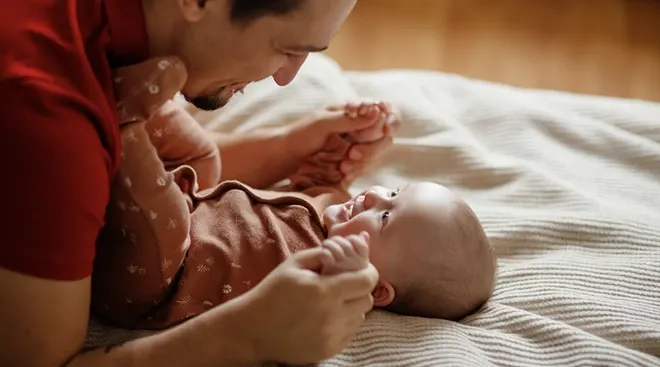Babies’ Language Skills May Be More Advanced Than First Words Suggest
Experts have long believed that babies learn individual words then progress to phrases and then to sentences. But one study is challenging that idea and has found that babies may learn individual words and more complex phrases simultaneously.
The study, conducted by linguists at the University of Edinburgh and researchers at Hebrew University of Jerusalem, looked at the language learning behaviors of 36 infants in attention tests that used recorded adult speech. They analyzed how the babies responded to three-word combinations that are frequently used in conversations between parents and kids, such as “clap your hands.” Comparing the babies’ responses using a method called central fixation—which measures how babies look around in response to certain sounds—the researchers found that babies could distinguish three-word phrases that were commonly used (“clap your hands” vs. “take your hands”).
The fixation time was longer for phrases that were used more often for 23 out of the 36 infants. This suggests that babies learn their first words and word combinations simultaneously. According to the study, this language development may be happening months before the child tries to say a sequence of words.
“Previous research has shown that young infants recognise many common words. But this is the first study that shows that infants extract and store more than just single words from everyday speech,” Dr. Barbora Skarabela, of the School of Philosophy, Psychology and Languages Sciences at the University of Edinburgh and an author on the study, said in a press release. “This suggests that when children learn language, they build on linguistic units of varying sizes, including multiword sequences, and not just single words as we often assume. This may explain why adults learning a second language, who tend to rely on individual words, often fall short of reaching native-like proficiency in the way they string words together into phrases and sentences.”
Please note: The Bump and the materials and information it contains are not intended to, and do not constitute, medical or other health advice or diagnosis and should not be used as such. You should always consult with a qualified physician or health professional about your specific circumstances.
Navigate forward to interact with the calendar and select a date. Press the question mark key to get the keyboard shortcuts for changing dates.








































